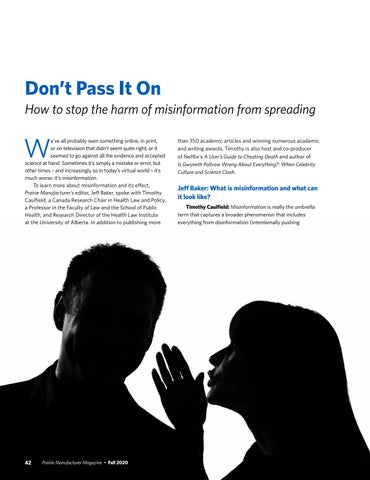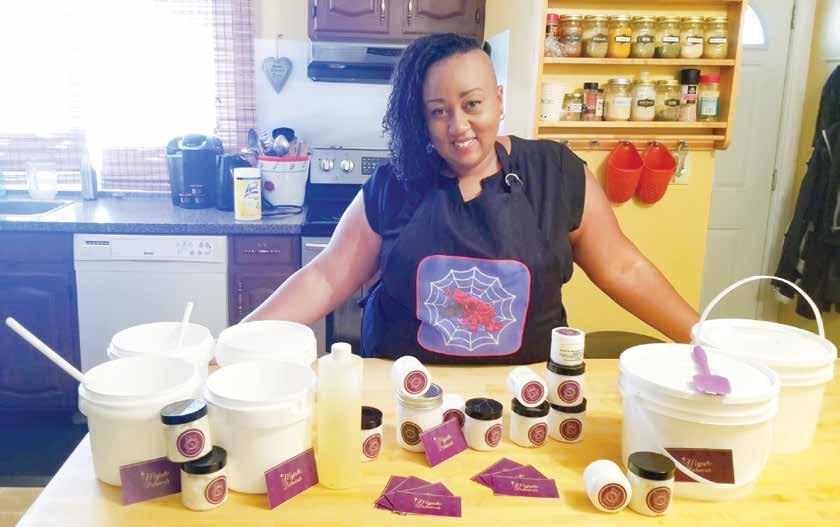Don’t Pass It On How to stop the harm of misinformation from spreading
W
e’ve all probably seen something online, in print, or on television that didn’t seem quite right, or it seemed to go against all the evidence and accepted science at hand. Sometimes it’s simply a mistake or error, but other times – and increasingly so in today’s virtual world – it’s much worse: it’s misinformation. To learn more about misinformation and its effect, Prairie Manufacturer’s editor, Jeff Baker, spoke with Timothy Caulfield, a Canada Research Chair in Health Law and Policy, a Professor in the Faculty of Law and the School of Public Health, and Research Director of the Health Law Institute at the University of Alberta. In addition to publishing more
42
Prairie Manufacturer Magazine • Fall 2020
than 350 academic articles and winning numerous academic and writing awards, Timothy is also host and co-producer of Netflix’s A User’s Guide to Cheating Death and author of Is Gwyneth Paltrow Wrong About Everything?: When Celebrity Culture and Science Clash.
Jeff Baker: What is misinformation and what can it look like? Timothy Caulfield: Misinformation is really the umbrella term that captures a broader phenomenon that includes everything from disinformation (intentionally pushing




